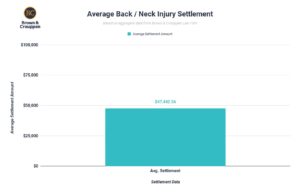TREATMENT VS. DIAGNOSIS
Following a crash, the emergency room doctors may complete a battery of tests to ensure no injuries have been sustained. These include diagnostic imaging, evaluations and blood screens, among others. This diagnostic treatment can come with a big price tag. Sometimes insurance adjusters will offer a lower amount of money if there are higher diagnostic expenses. Pain and suffering is another component of compensation one may be able to seek after an accident.
TYPES OF TREATMENT
The insurance industry has created a false narrative in the public and in handling insurance claims that certain treatment, such as physical therapy, chiropractors, and acupuncture, are not real medical treatment. As a result, often insurance companies will try to offer an injured party less than someone who went to see a traditional medical doctor, clinic, or hospital.
Brown and Crouppen’s primary concern for all of its clients is that they recover and that clients are comfortable with whoever is chosen as a treater. However, being aware of these issues may assist a client and doctor with making a treatment plan that does not include care that may not be covered by insurance companies.
LACK OF FOLLOW-UP TREATMENT
After a crash, an injured party may be so focused on a certain part of their body, they ignore the other pain or injuries. For example, if someone suffers a bad broken leg. Most of the initial treatment that may be incurred, will likely relate to that broken leg. Then months later, when that leg heals and the pain subsides, a person may find they are suffering from post-concussion symptoms or back pain. The person returns to the doctor then for what the insurance adjuster will now try to argue is a new complaint, unrelated to the crash.
Another issue that often arises is when a surgeon or doctor tells an injured person that no other treatment would help or make them better. This may cause a person to report no complications or pain associated with an injury, as the person thinks it will not make a difference to the outcome of their recovery. It may not make a difference to the recovery, but if a doctor notates 0 complaints in a record, an insurance adjuster can use that medical record to undervalue a claim and an injury, even if a person continues to experience loss of motion, pain and/or symptoms.
This can all be avoided by reporting ALL symptoms to your doctor, at every appointment. Report all symptoms even if the appointment is for treatment of primarily one area of the body. And remember to report all symptoms even if the doctor has indicated there is no more medical treatment available.







